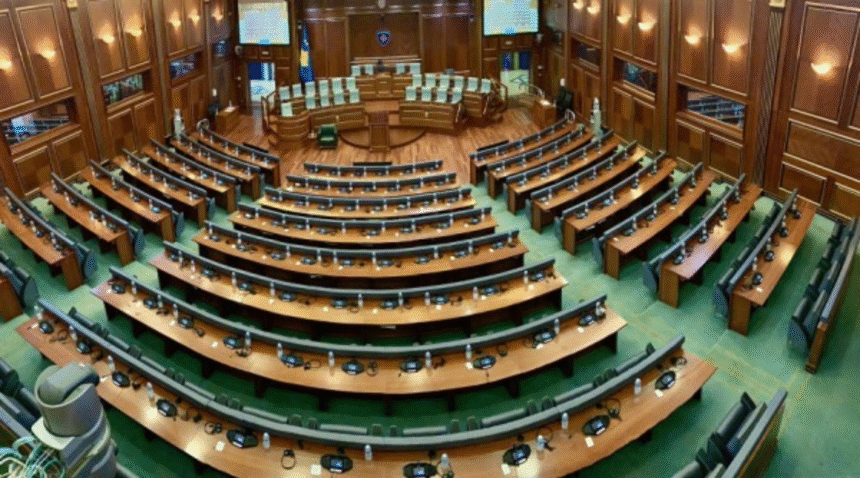The political stalemate in Kosovo continues, as parties show no willingness to compromise even after the Constitutional Court published the dispositive of its third ruling regarding the formation of the Assembly.
Political Deadlock Persists
Following the February 9 elections, Kosovo remains mired in political gridlock. Political parties continue to blame each other for the impasse, with little indication of negotiation or compromise.
Vetëvendosje (VV) shows no signs of adjusting its approach. Party leader Albin Kurti emphasized that work in the Assembly must continue despite the unresolved vacancy for the Serb community deputy speaker.
“The Constitutional Court ruling must be reviewed in full before giving our assessment. But currently, it is a waste of time that the Assembly is not functioning. The Assembly has elected Chairman Dimal Basha and four deputy speakers, yet the seat for the Serb community deputy remains unfilled,” Kurti stated.
He also criticized the opposition for failing to vote for Nenad Rashiq, noting that only five votes from the opposition could have resolved the vacancy.
Opposition Criticizes VV for Blockade
Meanwhile, opposition parties, particularly PDK, have criticized VV for obstructing parliamentary work. PDK has stated that it will not vote for the deputy speaker from the Serb List, further deepening the political deadlock.
The standoff leaves Kosovo with uncertain governance and slow legislative processes, highlighting the challenges in reaching cross-party consensus.
Constitutional Court Ruling and Its Impact
The third ruling of the Constitutional Court aimed to clarify the process for forming the Assembly and appointing deputy speakers. However, political parties remain entrenched in their positions, ignoring the Court’s guidance. Analysts warn that continued inaction may erode public trust in democratic institutions.
The Way Forward
Observers emphasize that Kosovo needs political compromise and a willingness from all parties to follow constitutional procedures. Without dialogue, the crisis risks prolonging legislative paralysis and undermining the stability of Kosovo’s democratic institutions.
“The political crisis highlights the urgent need for collaboration, or else Kosovo may face prolonged instability,” experts say.







